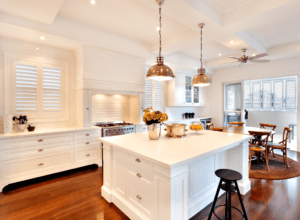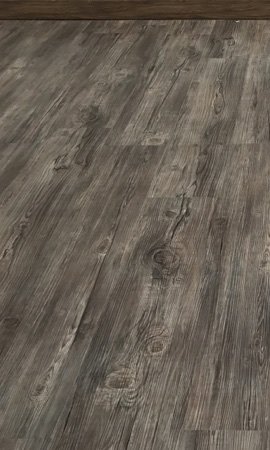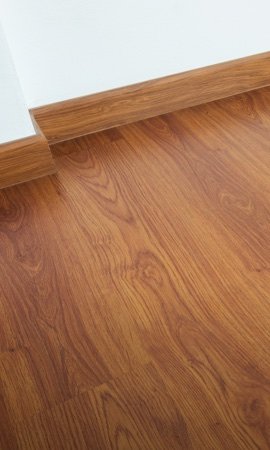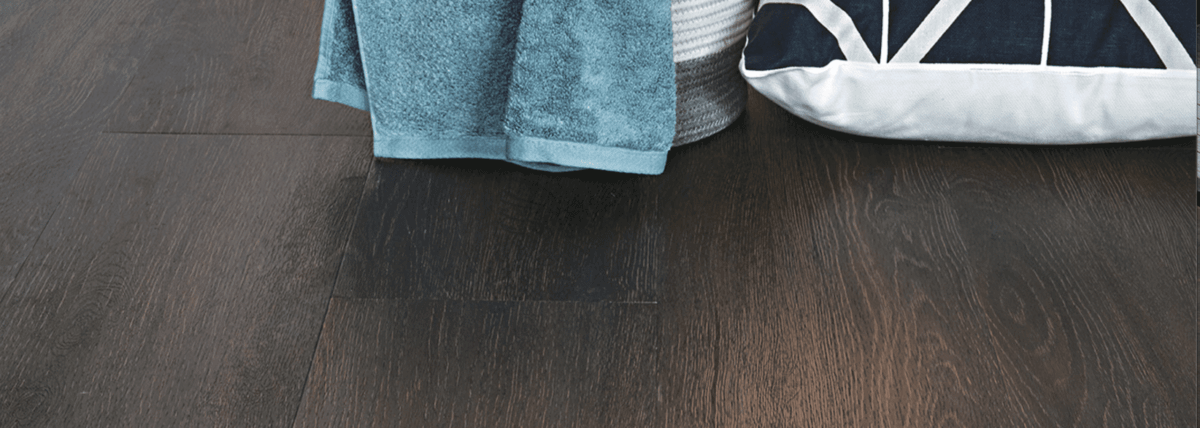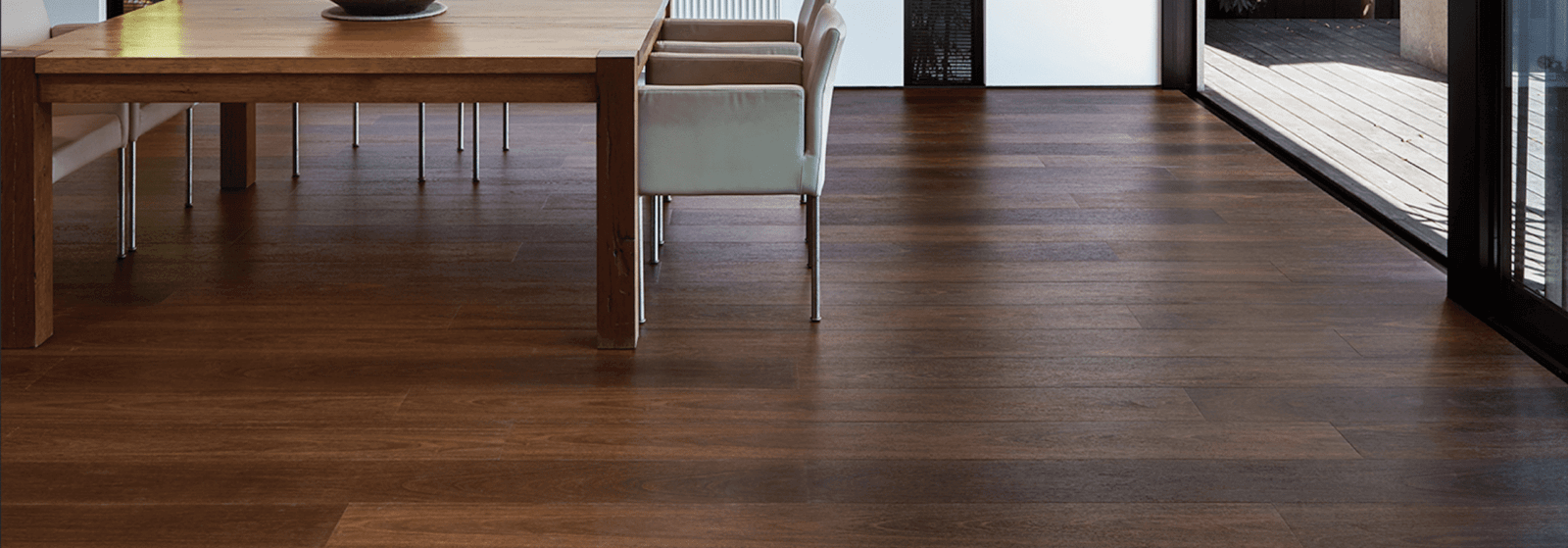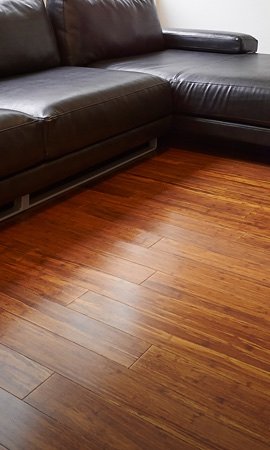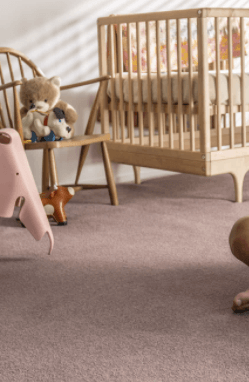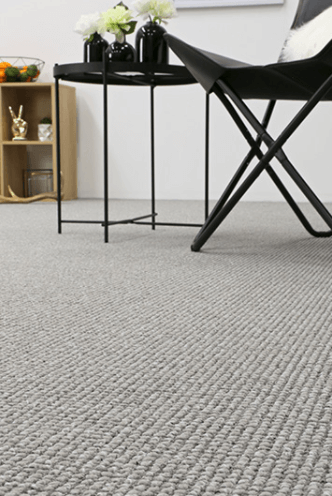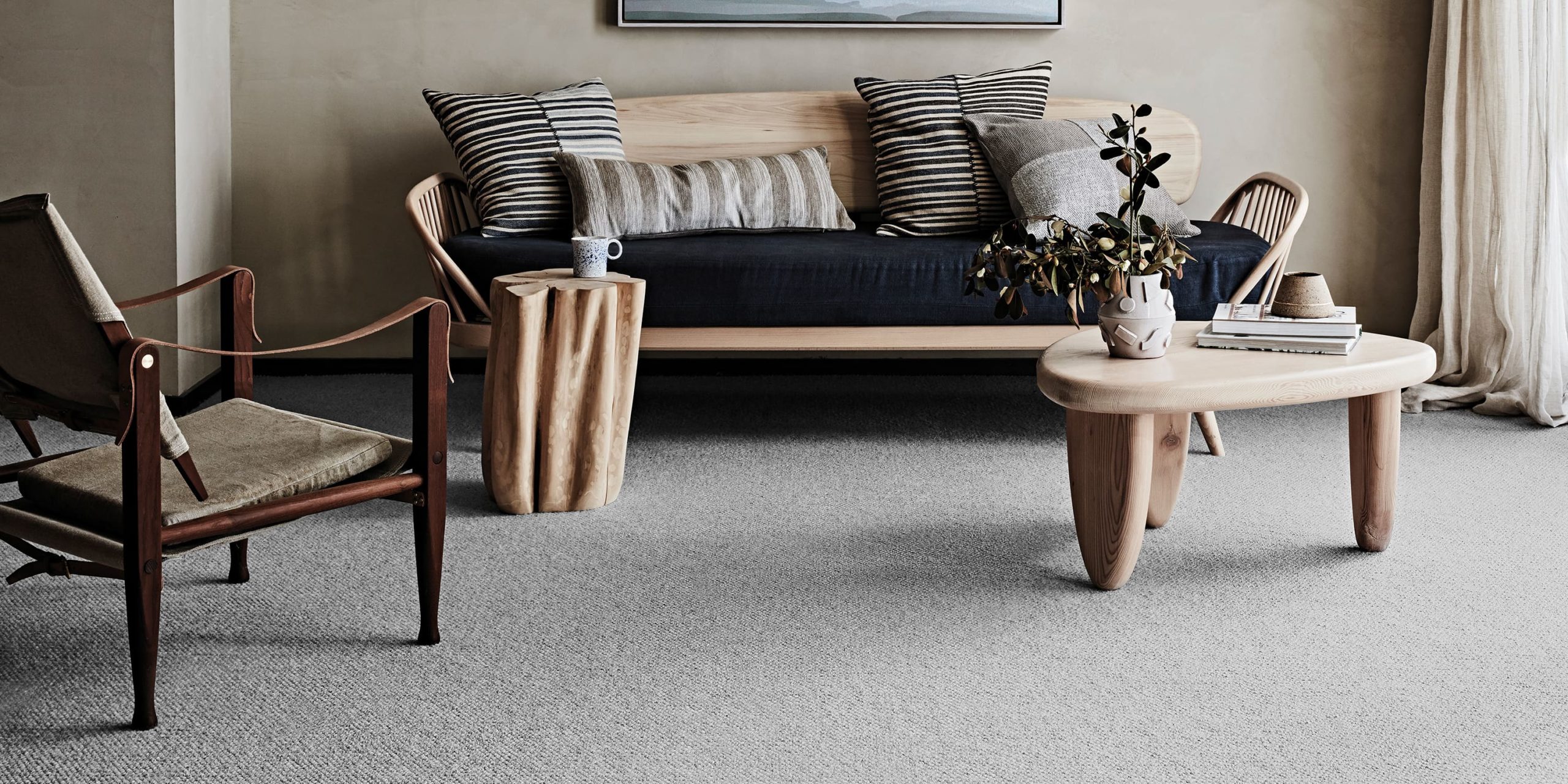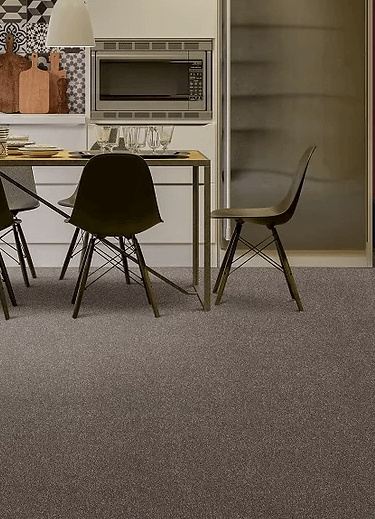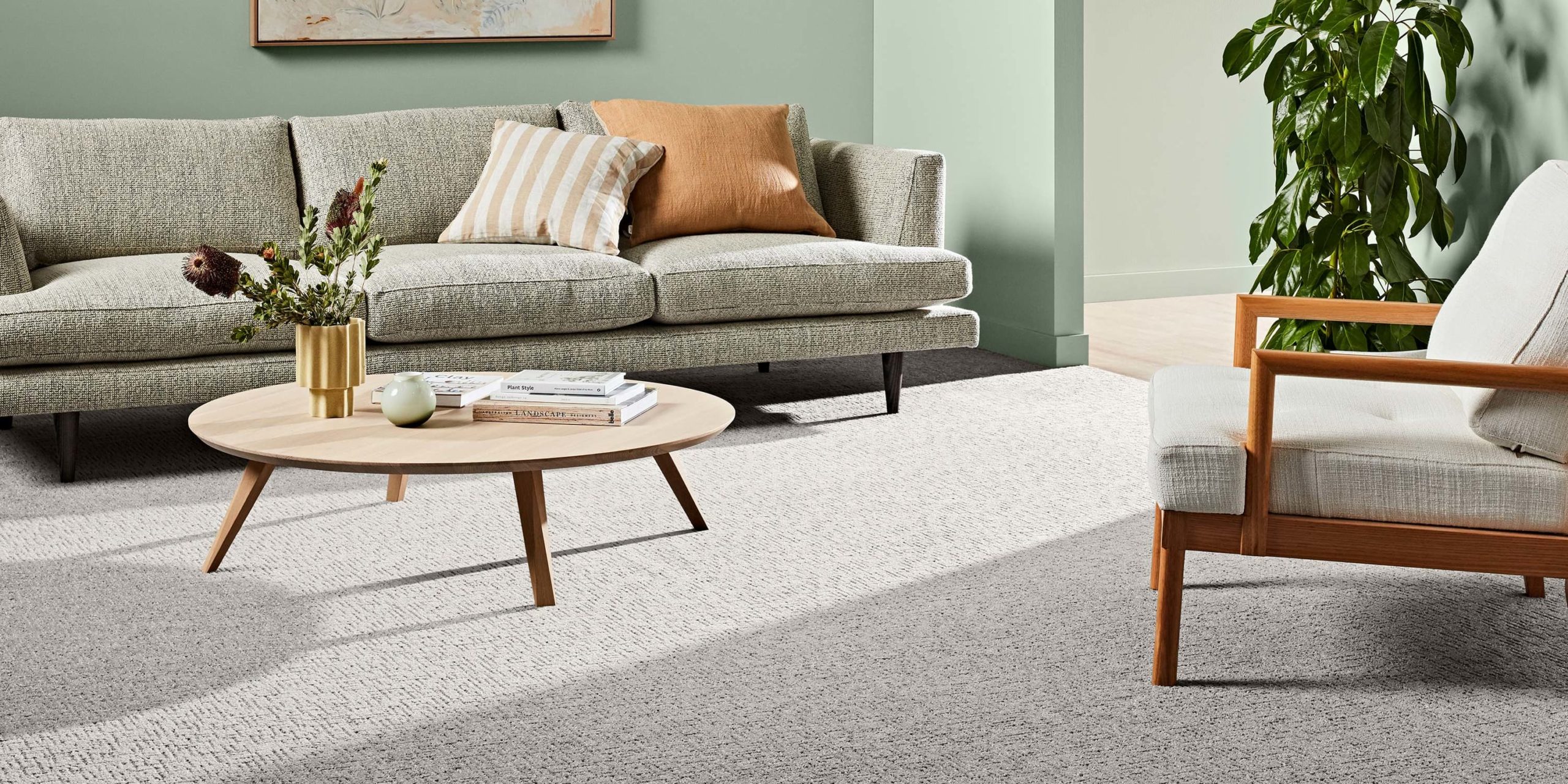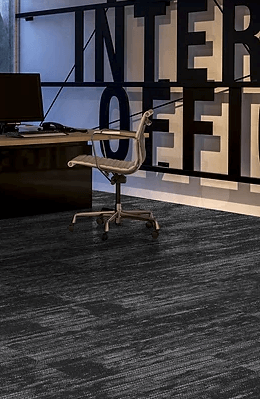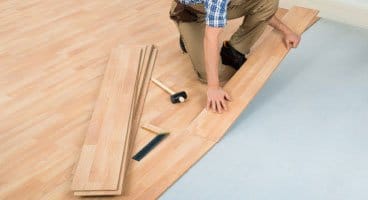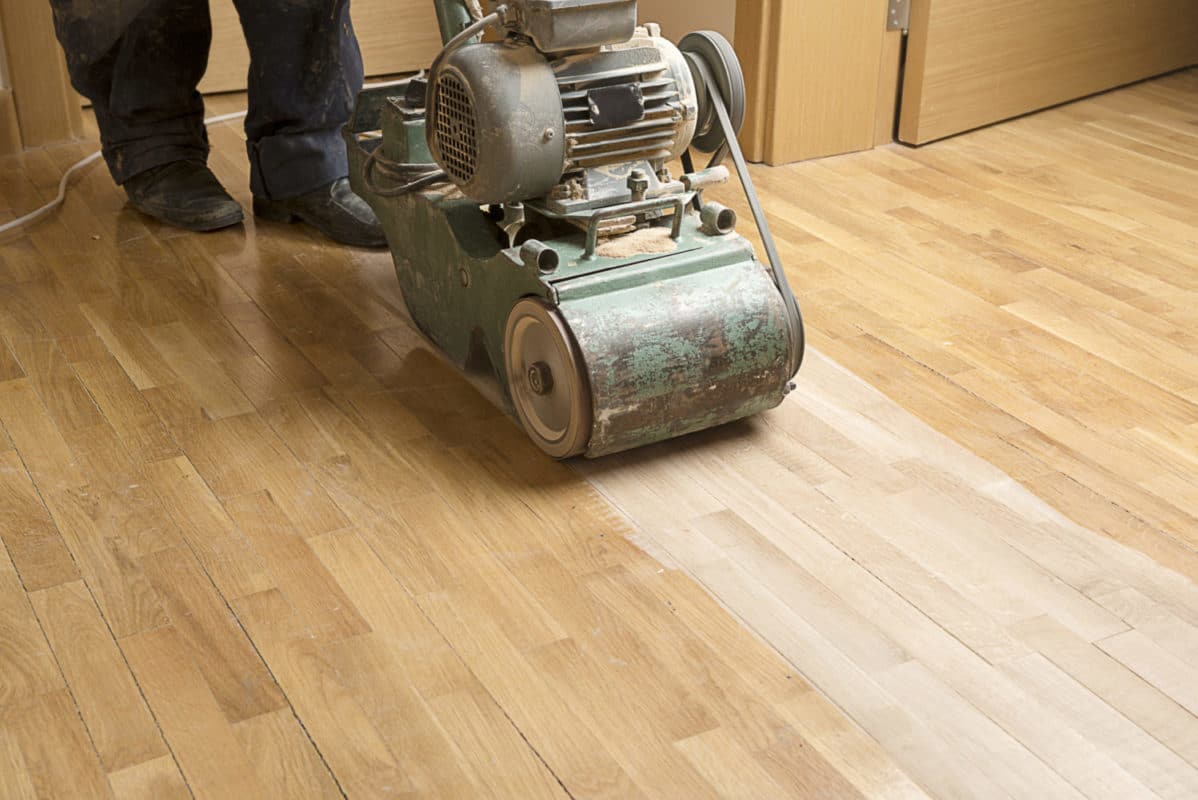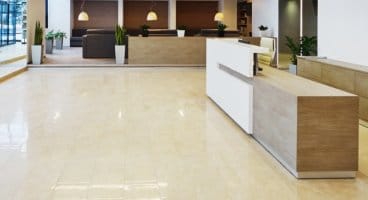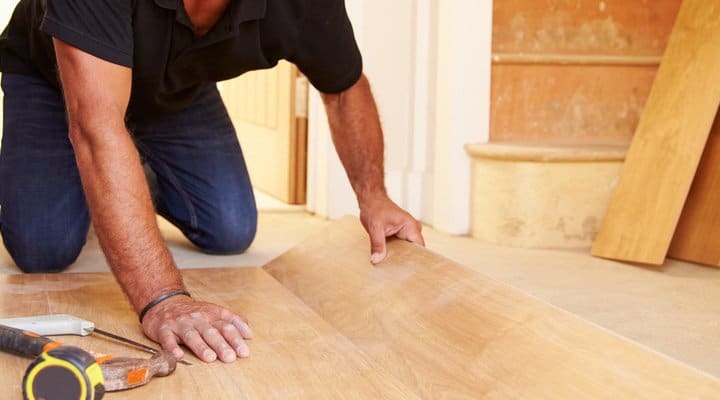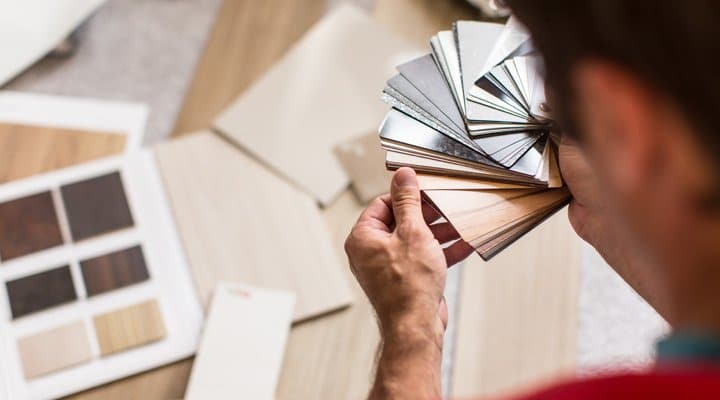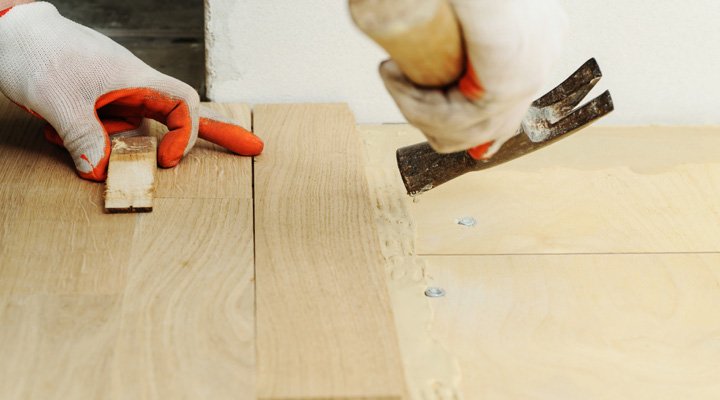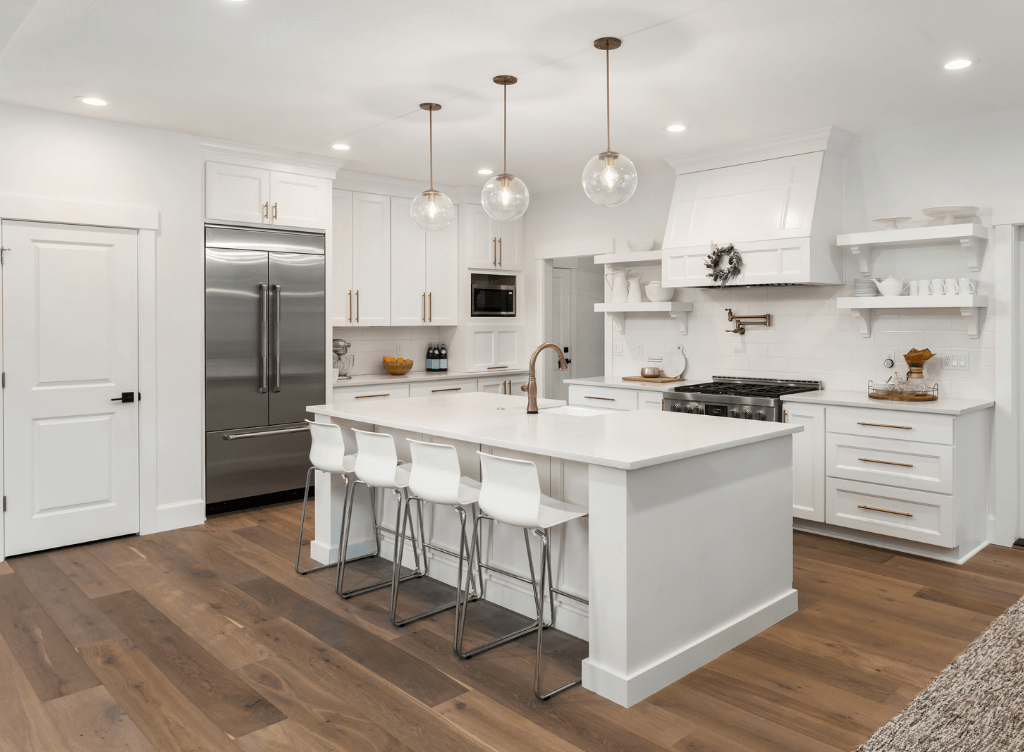

28 Apr Kitchen Laminate Flooring [2023 Guide]
Planning your flooring for kitchens comes with a plethora of considerations; it has the most foot traffic, kitchens have a higher risk of leaking pipes, and half of home fires originate from the kitchen. That begs the question, are laminate floors suitable for kitchens?
This guide will explain the pros and cons of laminate flooring in kitchens, and also provide four better alternatives.
Key concerns for kitchen flooring
- Waterproofing – When it comes to the kitchen, the primary factor to consider is water. Water from the tap, water from spills, even water from the leaky pipe in the cabinet or beneath the subfloor. The easiest solution is waterproof flooring.
- Durability – The kitchen experiences the rough and tumble of life, especially for those who love to cook. Can your floors withstand the continual footfalls and occasional knife drops?
- Fire Testing – According to the National Fire Protection Association, 49% of house fires begin from the kitchen. It is advisable to examine the fire test certifications of laminate flooring.
Pros and Cons of Laminate Flooring in Kitchens
Laminate flooring has been historically a popular option due to its low price, high durability and water resistance. However, every product has its drawbacks.
Advantages of laminate flooring:
- Scratch and Dent Resistant – The biggest reason people love laminate floors, especially for high traffic areas like kitchens is because of their hard wearing surfaces. Laminate floors are even more abrasion resistant than solid timber.
- Water Resistant – The vast majority of laminate floors are designed to resist absorbing water. Some of these can last up to 72 hours before water damage becomes a risk. This is a great attribute for wetter areas like the kitchen.
- Very Affordable – Laminate floors are one of the more economical flooring options in the market. This is because it’s easier to manufacture and the recycled materials are cheaper to procure. You can certainly save on laminate floors.
Disadvantages of laminate flooring:
- Not Waterproof – As the kitchen is very exposed to spillages and has a higher risk of pipe leaks, water damage is almost inevitable even with water resistant laminate floors. Waterproofing is one way to safeguard against these problems, which laminate floors lack.
- Not Fireproof – Laminate floors are made of wood particle boards which risk catching fire when exposed to a flame. This is more important in kitchen areas.
laminate flooring is a good solution, but nowhere near the best when it comes to kitchens. The number one attribute for kitchens should be waterproofing. Whilst they win on durability, laminate floors are not waterproof and will ultimately be exposed to much more moisture in the long run from spills and leakages.
Laminate flooring is not the best kitchen flooring. That poses the question, what is the best flooring for kitchens?
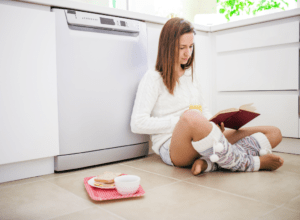

Best Kitchen Flooring Options
No.1 Ceramic & Porcelain Tiles
Tiles have long since been the most trusty floor covering in kitchens. Porcelain tiles are more durable and expensive than the ceramic counterparts. Both are hardwearing, 100% waterproof and we all know that stone doesn’t catch fire.
Advantages of Kitchen Tiles:
- Waterproof – Tiles are nonabsorbent and can withstand any amount of water thrown at it. This makes it perfect for areas with higher exposure to moisture.
- Durable – Tiles are extremely durable compared to wood type floors. They can easily withstand the heavy traffic which kitchens experience.
- Maintenance – Tiles are very easy to maintain even if you have pets.
Disadvantages of Kitchen Tiles:
- Expensive – Tiles are a lot more expensive to install than floating floors like laminate or hybrid flooring, as they require screeding and higher skilled labour.
- Hard Surface – Tiles do not go well with water or oil on the surface. Whilst they are waterproof, you will need to be careful to not slip over. One way to overcome the hazard of falling is to select a product which offers certified slip resistance.
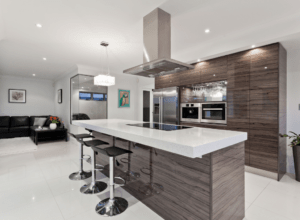

No.2 Hybrid Flooring
Hybrid floors are not only 100% waterproof and strong, but also made up of a stone and plastic composition which makes them less flammable than wood. They now allow homeowners to achieve a seamless wood-look floor covering throughout the house, including kitchens areas.
Advantages of Kitchen Hybrid Floors:
- Waterproof – Hybrid floors are waterproof since they are made of a stone-plastic or wood-plastic composite. This is why hybrid floorings are very popular in residential areas as of late.
- Durable – Hybrid floors are not only waterproof, but are also hardwearing against scratches and dents. They can definitely stand up to the usual traffic in kitchens. (Although not as strong as tiles)
- Fire Resistant – Hybrid floors are less flammable than wood type floors since they are made of either a stone and plastic composite (SPC) or wood and plastic composite (WPC).
- Affordable – Hybrid floors are on the more affordable side of flooring options and are also cheap to install since they are floating floors. This means repairing damaged floorboards down the line are also easy.
Disadvantages of Hybrid Floors:
- Unlevel Subfloors – Hybrid floors require very even subfloors as they may crack and move over time otherwise. This can potentially incur extra subfloor levelling fees during the installation process.
- UV Fading – Heavy exposure to sunlight can cause some of the colours to fade over time. Make sure to purchase higher quality hybrid floors which have UV resistant wear layers which can help them look beautiful for longer.
Looking to learn more about hybrid flooring? Check out our ultimate guide to hybrid flooring, or explore our hybrid product range!
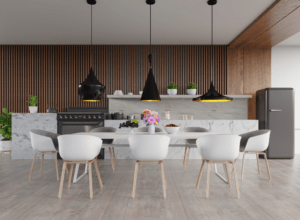

No.3 Luxury Vinyl Planks
Vinyl planks are similar to hybrid floors as they are made of polyvinyl chloride (PVC). Fully waterproof and fire retardant, vinyl planks are great for kitchens and even commercial settings.
Advantages of Kitchen Luxury Vinyl Planks:
- Waterproof – Luxury Vinyl Planks are also fully waterproof which makes them very attractive for kitchen areas.
- Impact Resistant – Since Luxury Vinyl Planks are made of a slightly soft PVC, they can cushion and resist most impacts which may occur from dropped utensils whereas a laminate or hybrid floor may scratch slightly.
- Affordable – Luxury Vinyl Planks are relatively affordable (similarly priced with hybrid floors) and use glue to install. It is more affordable than tile flooring in the kitchen.
Disadvantages of Kitchen Luxury Vinyl Planks:
- VOC Ratings – As vinyl planks are made of PVC, low quality options are more prone to releasing volatile organic compounds (VOCs) which may cause respiratory irritation.
- Cuts & Scratches – Since vinyl planks are softer than other types of flooring, they are more prone to cuts from sharp objects than harder floor coverings like laminate floors.
Interested in Vinyl Plank Flooring? You can explore our entire range of vinyl floors here!
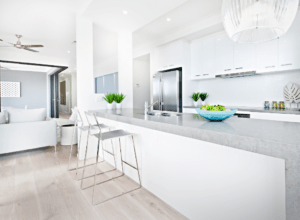

No.4 HydroPro Timber
HydroPro Timber is an engineered timber range which uses a 100% waterproof, limestone based core. The surface has 8 coatings of UV and water/scratch resistant lacquer, giving you the peace of mind and beauty of real timber in one package.
Advantages of HydroPro Timber:
- 99% Waterproof – HydroPro Timber can easily hold against spills and moisture exposure thanks to water sealing surface lacquer and its limestone composite core which is fully waterproof. This makes it suitable for kitchens and laundry rooms.
- Dimensional Stability – HydroPro Timber is impervious to warping which other wood type floors are prone to in moisture or temperature fluctuations. This can be attributed towards the composite core and backing layer.
- Real Hardwood – Natural, authentic timber is definitely the most loved and high valued floor covering in the market. HydroPro comes in our favourite native Australian hardwoods including Blackbutt and Spotted Gum.
Disadvantages of HydroPro Timber:
- Abrasion Resistance – Whilst timber is not weak, real wood is less abrasion resistant than synthetic laminate flooring and hybrid flooring. This means it will scratch slightly easier.
- Expensive – Flooring which has real timber is always more expensive than synthetic options. HydroPro Timber is hence more expensive than laminate, hybrid and vinyl flooring.
